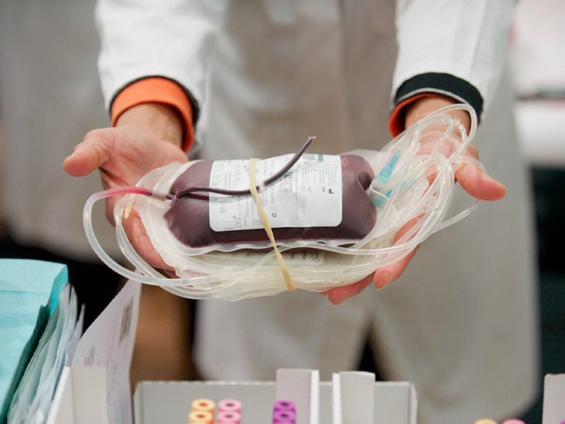Health Experts say refusal of blood transfusion is not synonymous to rejection of medical care. They therefore caution against rejection and stigmatisation of people who refuse blood transfusion.
They said the decision not to accept blood transfusion was not ethically and medically wrong and per Ghana's legal regime and other international conventions, the patient had the right over their health needs.
Mr Sakitey Sackey, Staff Researcher at the Hospital Information Department of Jehovah's Witnesses, Ghana, said there had been alternative medications that had been proven and tested in Ghana and across the globe.
He was speaking during a media sensitisation on the topic: "The Medical and Ethical Challenges -Those Refusing Allogeneic Blood Transfusion," using the Jehovah's Witnesses as a Case Study Group.
The engagement sought to bring to light the importance of alternative medication.
Mr Sackey said: "If anyone or doctors say it is only the blood that patients need to survive, that is not so but there are alternatives."
He said the application of alternative medications would help reduce the amount of blood required at health facilities and limit the adverse effect of blood transfusion.
"It reduces health care costs, the cost of the health system and mortality," he said.
The Jehovah's Witnesses are said to be stigmatised for not accepting allogeneic blood transfusion (someone's blood to another person) and autologous blood transfusion (reinfusion of blood or blood components to the same individual from whom they were taken).
However, there are minor fractions of the blood component that are acceptable by them.
Mr Samson Kraikue, a Clinical Pharmacist and Programme Coordinator for Hospital Information Department, Jehovah's Witnesses, Ghana, said blood transfusion was not sacrosanct to the survival of patients.
He said alternative medications had proven to be simple, easy, efficacious, and cost-effective in cases of trauma and emergency, especially based on the type of alternative used and time it had been used.
"There have been instances where people die from blood transfusion and the cost of managing blood transfusion reactions is huge. You have no idea," he said.
He said it was possible to manage road accident victims, who have lost blood without allogeneic blood transfusion and that the country needed to develop protocols to care for patients in the absence of blood transfusion.
Dr Emmanuel Akorli, Managing Director at the Tamale Teaching Hospital, said: "We have experienced patients who come in with very low haemoglobin and the patients are managed with these alternatives and they survive. So, it is true, it is possible, it works."
"It is unfortunate some of our doctors just do not want to try the alternative, but there are others who have embraced it," he said.
Latest Stories
-
Dr. Musah Abdulai: If the Chief Justice returns: Will it lead to reset, redemption, or rupture?
21 minutes -
Tano Deity dispute: Bantamahene pardoned after offering guilty plea to Asantehene
51 minutes -
Dumelo inaugurates Board of Tree Crop Development Authority
58 minutes -
Akufo-Addo’s office denies reports of attempting to influence upcoming NPP Delegates Conference
1 hour -
WAFCON 2024: Second half brilliance against Tanzania takes Black Queens to quarter-finals
1 hour -
Dison International School holds colourful graduation to mark academic progress
1 hour -
UMaT launches IET-GH Student Chapter with a call to engineer a better future
1 hour -
Dialysis crisis: Cape Coast Teaching Hospital struggling to keep up with demand
1 hour -
NPP must not sideline Kufuor in key decisions – Dr Asah-Asante warns
2 hours -
Afenyo-Markin under fire for ‘strange elevation’ comment to Essikado MP ‘over’ Zanetor
2 hours -
Abanga Yakubu refutes allegations of leading unauthorised anti-galamsey operations
2 hours -
Minority, Majority MPs clash over credit for Ghana’s economic gains
3 hours -
2025 NPP Congress: Kufuor, Akufo-Addo to deliver virtual address to delegates
3 hours -
UG lifts ban on social gatherings amid improved COVID-19 situation
4 hours -
Cataract, glaucoma, and pterygium predominant in Ketu North Municipality
4 hours

